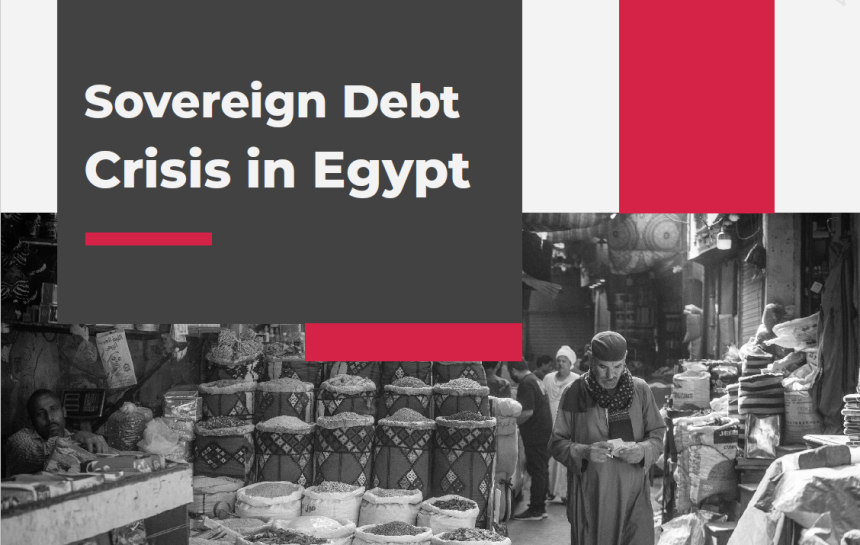
Sovereign Debt Crisis in Egypt
by Mohamad Ramadan
Introduction
Over the past years, Egypt has been experiencing a severe debt crisis, the effect of which remain ongoing, despite partial financial support from some GCC countries. During this prolonged crisis from 2022 to 2024, Egypt suffered numerous direct impacts due to the rising debt payments, particularly foreign debts, which directly contributed to the dollar shortage crisis. This situation led to successive devaluations of the Egyptian pound, as Egypt sought funding from the International Monetary Fund (IMF) and its Gulf partners to overcome its financial and economic crisis.
Many factors- some ongoing but latent, have intersected to cause the sovereign debt crisis in Egypt, potentially triggering new liquidity crises. These, in turn, will create ongoing pressure on the balance of payments, which may lead to further devaluations of the Egyptian pound. Such devaluations would, in turn, unleash long-term inflation—particularly in food prices, as Egypt relies heavily on imports to meet a large part of its food needs, especially essential staples like wheat. Additionally, inflation induced by rising energy prices has had a direct impact on living standards.
The structural causes of the debt crisis remain unresolved, as the general economic framework and the macroeconomic policies adopted by the Egyptian government in partnership with international institutions, continue to reproduce the crisis rather than offering a definitive solution. This reflects a continuation of Egypt’s structural balance of payment issues. Over the past two decades (2002-2024), Egypt has devalued its currency numerous times in an effort to solve the chronic balance of payment crisis. However, these efforts have failed to steer the country out of its recurring economic troubles and guide it toward more favorable terms to integrate the global economy that would avoid dependence on borrowing and the international debt market.
This report aims to provide an analysis of the sovereign debt situation in Egypt over recent years, specifically from 2016 to the end of 2023—a period marked by successive currency devaluations triggered by the debt crisis. The report analyzes changes in the status of domestic and foreign debt in light of numerous developments and factors, most notably the COVID-19 pandemic and the economic pressures it placed on countries, followed by the monetary tightening policies adopted by central banks in the Global North and their impact on Egypt’s debt situation. The report also examines the geostrategic implications of the Russia-Ukraine war and its effects on Egypt's debt and broader economic conditions.
This report draws a comprehensive overview of the foreign and domestic debt in Egypt in order to develop recommendations to improve the management of public debt mechanisms. This aims at helping Egypt emerge from the debt crisis and achieve solid growth rates that will positively impact the economic well-being of Egyptian households.